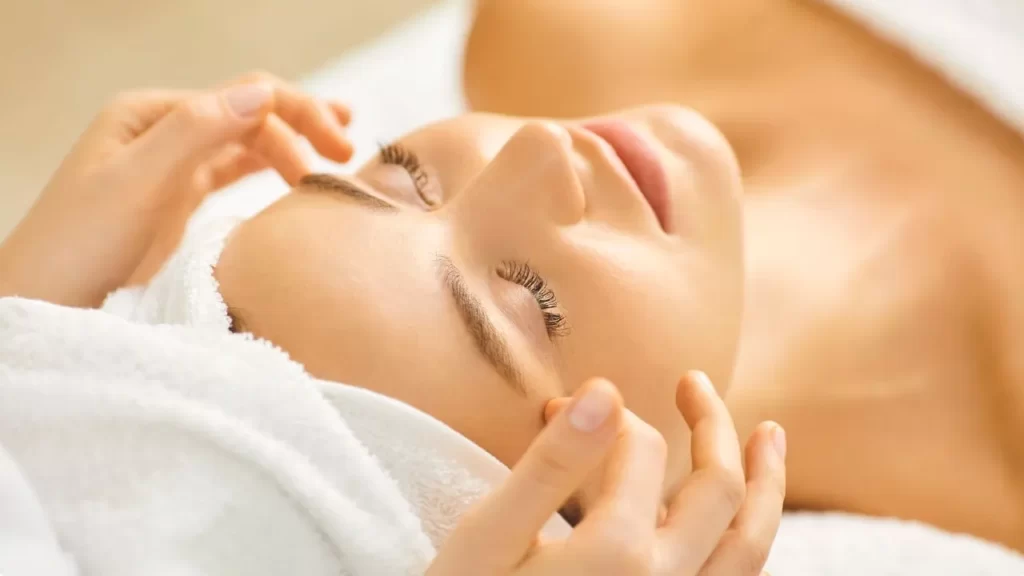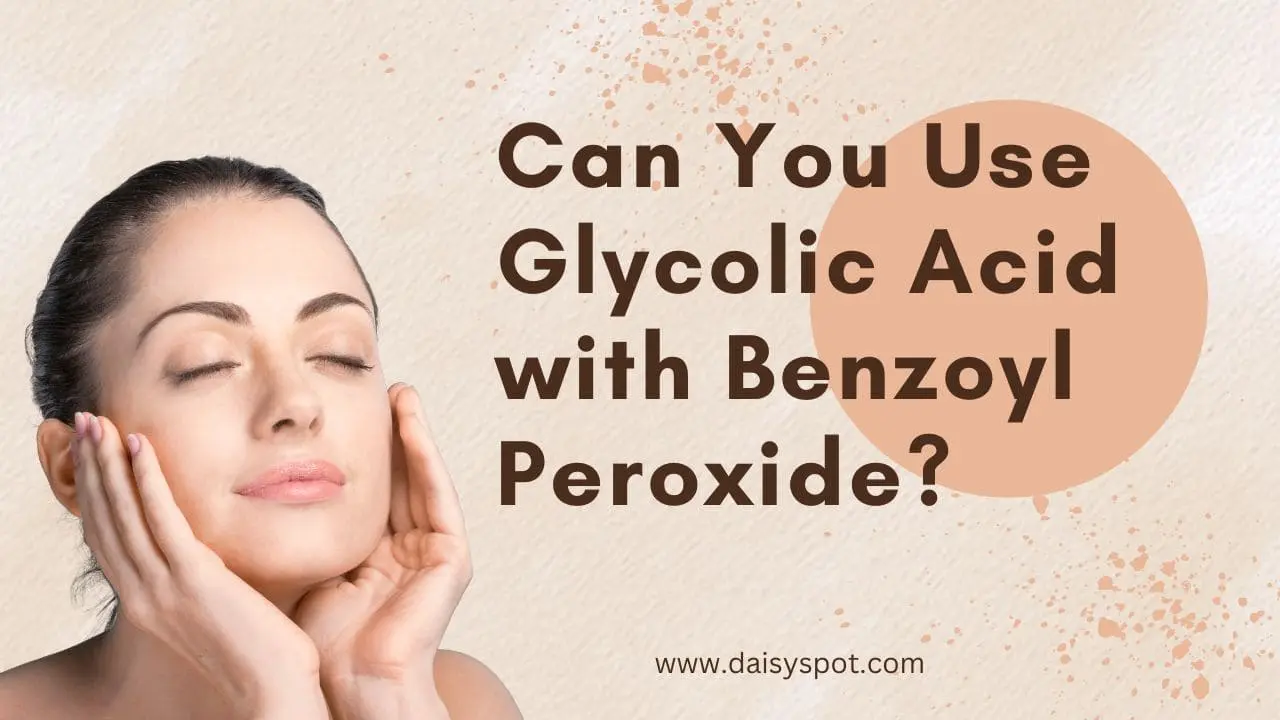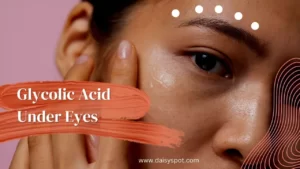Introduction:
Hey there, skincare enthusiasts! Are you struggling to achieve clearer, healthier skin? If so, you have likely heard of glycolic acid and benzoyl peroxide. These two ingredients are known for their ability to fight acne and improve skin texture.
But here comes the big question: Can you use glycolic acid with benzoyl peroxide? Well, stick around because, in this article, we’ll explore some positive as well as negative effects of using glycolic acid with benzoyl peroxide.
The best part? I will share some tips if you want to use both ingredients side by side.
So, grab a cup of tea and get ready to discover the secrets of using glycolic acid and benzoyl peroxide together!
Understanding Glycolic Acid and Benzoyl Peroxide:
Glycolic acid is an alpha-hydroxy acid (AHA). It is generated from sugar cane. It is well-known for its exfoliating properties and ability to remove dead skin cells, unclog pores and promote cell turnover. It can be used with other acids like Salicylic acid.
On the other hand, benzoyl peroxide is an organic compound that acts as an antimicrobial agent (any agent that destroys microorganisms). It effectively kills the bacteria that contribute to acne breakouts. Additionally, it helps reduce inflammation and regulate excessive oil production.

Can You Use Glycolic Acid with Benzoyl Peroxide?
The short answer is YES. You can use Glycolic Acid and Benzoyl Peroxide together in your skincare routine. However, it is crucial to approach the combination of these ingredients with awareness. This will help avoid potential skin irritation or dryness.
Below are some positive and negative sides of using these ingredients together.
Positive effects:
Using Glycolic acid with Benzoyl peroxide can have really cool benefits for your skin.
Here are some positive effects:
- Fighting with acne
- Exfoliating and Preventing Clogged Pores
- Improving Skin Texture and Reducing Inflammation
- Fading Acne Scars and Dark Spots
- Controlling Excess Oil
- Brightening dull skin
- Anti-aging effects
- Balancing uneven tone
- Boosting cell turnover
Negative effects:
Can You Use Glycolic Acid with Benzoyl Peroxide? Hell yes!
But, there are some potential negative effects to be aware of:
- Skin irritation
- Increased sensitivity to the sun
- Over-drying of the skin
- Allergic reactions
- Hyperpigmentation risk

Tips for using Glycolic Acid with Benzoyl Peroxide:
Can You Use Glycolic Acid with Benzoyl Peroxide? You got your answer right!
Now To minimize the negative effects and optimize the benefits of using glycolic acid and benzoyl peroxide together, consider the following tips:
1. Start with a patch test:
Before applying any new product to your face, a patch test is important to check for any reactions. Apply a small amount of the product containing glycolic acid or benzoyl peroxide to a small area of your skin, and look for any signs of irritation or redness.
2. Introduce them gradually:
If you’re new to using glycolic acid or benzoyl peroxide, start by using them every few days to allow your skin to adjust. Over time, you can gradually increase their use if they suit your skin.
3. Separate application:
To minimize the risk of irritation, it’s generally recommended to use glycolic acid and benzoyl peroxide at different times of the day. You can use one ingredient in the morning and the other in the evening.
4. Cleansing with benzoyl peroxide:
If you’re using a cleanser containing benzoyl peroxide, it’s best to use it as your first step in your skincare routine. Gently massage the cleanser onto the damp skin for a few minutes before rinsing it off.
5. Moisturize and protect:
Both glycolic acid and benzoyl peroxide can dry your skin, so it’s better to apply a moisturizer after application. Look for a lightweight, oil-free moisturizer that won’t clog your pores. Additionally, always use sunscreen during the day since these ingredients can increase sun sensitivity.
6. Gradual increase in concentration:
If you’re using products with higher concentrations of glycolic acid or benzoyl peroxide, it’s best to start with lower concentrations and gradually increase the concentration. This allows your skin to adjust and reduces the chance of excessive dryness or irritation.
7. Avoid sensitive areas:
Be cautious when applying these ingredients around the eyes, mouth, and any areas of broken or irritated skin. These areas can be more sensitive, and the ingredients may cause further irritation.
8. Consult a dermatologist:
If you have severe acne or sensitive skin, it’s always a good idea to consult a dermatologist first. They can provide personalized advice and recommend the most suitable products for your skin type.
Conclusion:
And there you have it, skincare enthusiasts!
We’ve explored skincare chemistry to answer the burning question: Can you use glycolic acid with benzoyl peroxide? The good news is, you absolutely can! Both ingredients help fight acne and reveal your skin’s natural beauty.
Remember, everyone’s skin is different, so it’s essential to listen to your skin’s reactions and adjust your routine accordingly. Try using them less often if you experience excessive dryness or irritation.
Cheers to your newfound skincare success!
FAQs
Are glycolic acid and benzoyl peroxide good for acne?
Yes! Glycolic acid and benzoyl peroxide are considered beneficial for acne treatment. These two ingredients are widely used in skincare products due to their effectiveness in combating acne breakouts.
What is the best combination with glycolic acid?
The best combination with glycolic acid depends on individual skin needs. Generally, a good combination with glycolic acid is sunscreen. Glycolic acid can increase skin sensitivity to the sun. So using sunscreen helps protect the skin from sun damage.
Does glycolic acid lighten skin?
Yes, glycolic acid can help lighten skin tone. It is an exfoliating agent that can fade dark spots, improve skin texture, and promote a brighter complexion.
Can I use glycolic acid on active acne?
Using glycolic acid on active acne is generally not recommended as it may cause irritation and worsen inflammation. Instead, focus on using products specifically designed to treat active acne and consult a dermatologist for personalized advice.










